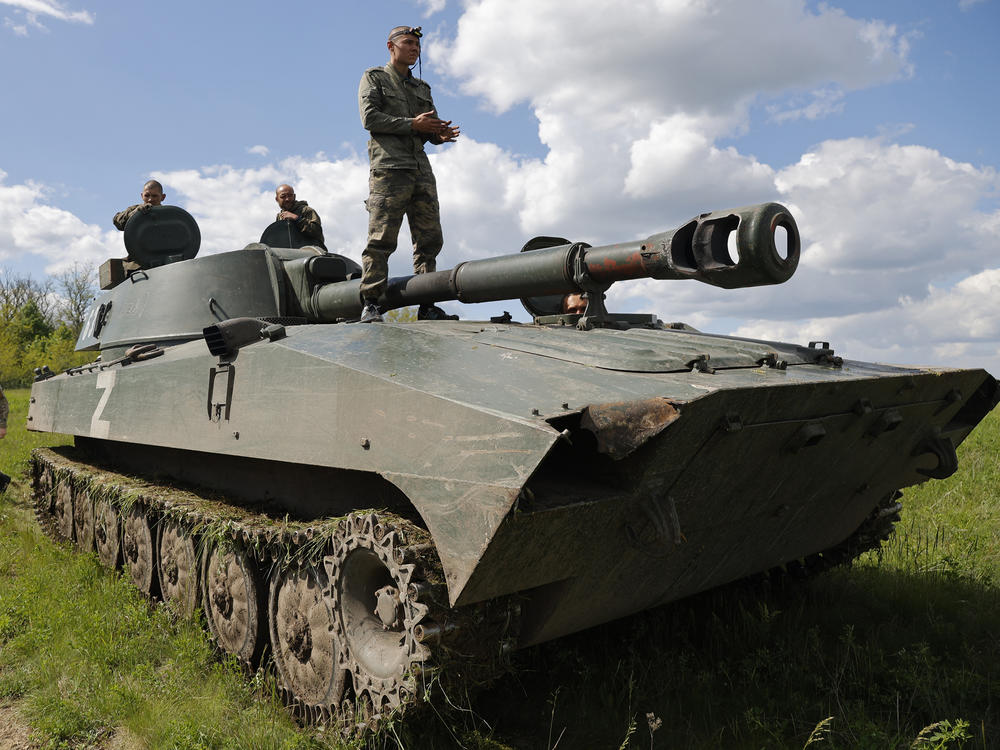Section Branding
Header Content
Russia-Ukraine war: What happened today (May 20)
Primary Content
As Friday draws to a close in Kyiv and in Moscow, here are the key developments of the day:
Russia said it completed its takeover of the Ukrainian port city of Mariupol, with the defense minister claiming that Russian forces seized the Azovstal steel plant, the last bastion of Ukrainian resistance. Ukraine's government didn't immediately comment. Meanwhile, fighting heated up in eastern Ukraine. President Volodymyr Zelenskyy said Russia's assault turned parts of the Donbas region into "hell." The governor of Luhansk said Russian attacks killed a dozen residents in the key city of Severodonetsk, including three adults killed when Russia struck a school where civilians were taking shelter.
The Group of Seven wealthy economies will provide $19.8 billion in economic aid to Ukraine. The financial support is separate from weapons and humanitarian assistance, aiming to help the Ukrainian government maintain services for its population. The deal was struck by G7 finance leaders from the U.S., Canada, France, Germany, Italy, the U.K. and Japan. By one key estimate, Ukraine's economy is expected to shrink by 35% because of the war.
Finland's state-owned energy company Gasum said Russia will cut off its natural gas supply on Saturday morning. Finland is applying for NATO membership and has refused Russia's demand to pay for gas in rubles. Russia previously cut off gas supplies to Poland and Bulgaria, which also refused to pay in rubles. Gasum's CEO said Finland had been preparing for the cutoff and "there will be no disruptions to the gas transmission network." Russia-supplied gas accounts for about 5% of Finland's energy consumption.
Former German Chancellor Gerhard Schröder stepped down as chair of Russia's Rosneft oil company. A long-time friend of Russian President Vladimir Putin, Schröder faced growing calls to shed his financial ties with Russia's state energy companies and the Nord Stream gas pipelines connecting Russia and Germany. On Thursday, German lawmakers stripped Schröder of numerous privileges afforded to the country's former leaders, and a European Parliament vote suggested he might face sanctions. Schröder, who served as chancellor from 1998 to 2005, is viewed as instrumental in increasing Germany's energy dependence on Russia.
In-depth
Russia aims to capitalize on controlling the Ukrainian port city of Mariupol.
Millions rushed to leave Ukraine. Now the queue to return home stretches for miles.
A photographer uses toys to reflect children's experiences in war.
Two versions of history collide as Finland and Sweden seek to join NATO.
Fighting the horror of wartime rape, Nobel Prize Peace winner won't give up hope.
Special report
Russia's war in Ukraine is changing the world: See its ripple effects in all corners of the globe.
Earlier developments
You can read more daily recaps here. For context and more in-depth stories, you can find NPR's full coverage here. Also, listen and subscribe to NPR's State of Ukraine podcast for updates throughout the day.
Copyright 2022 NPR. To see more, visit https://www.npr.org.

